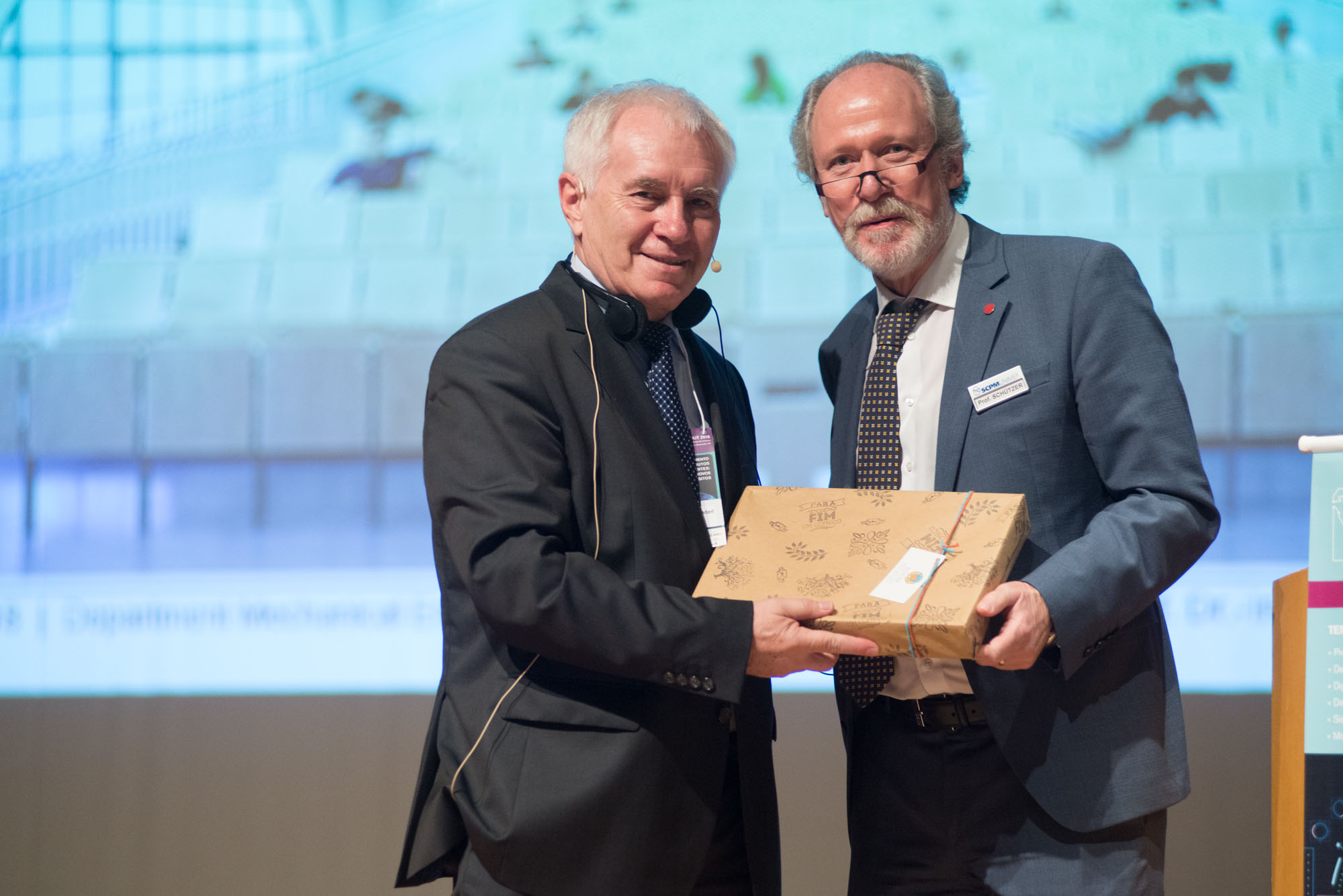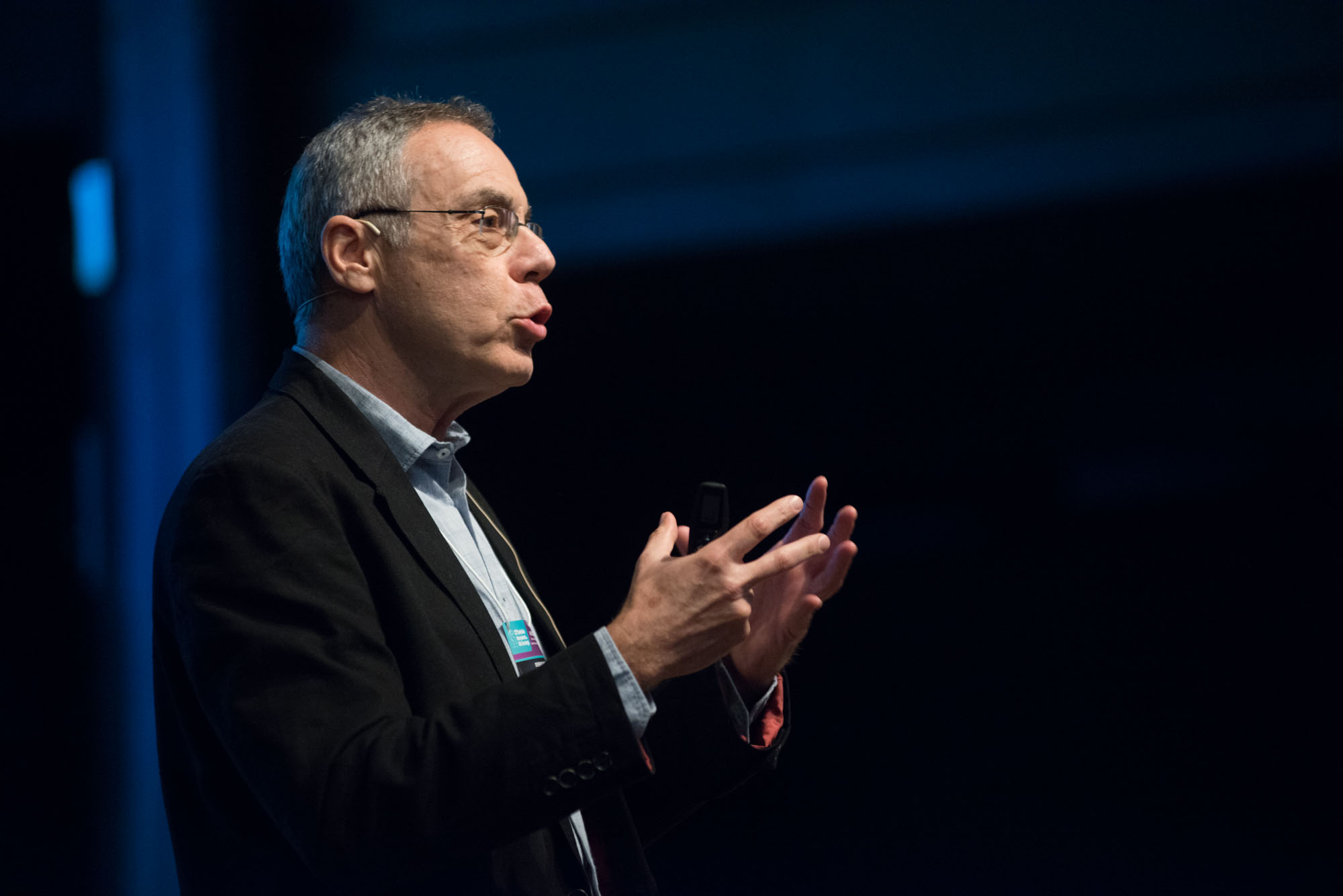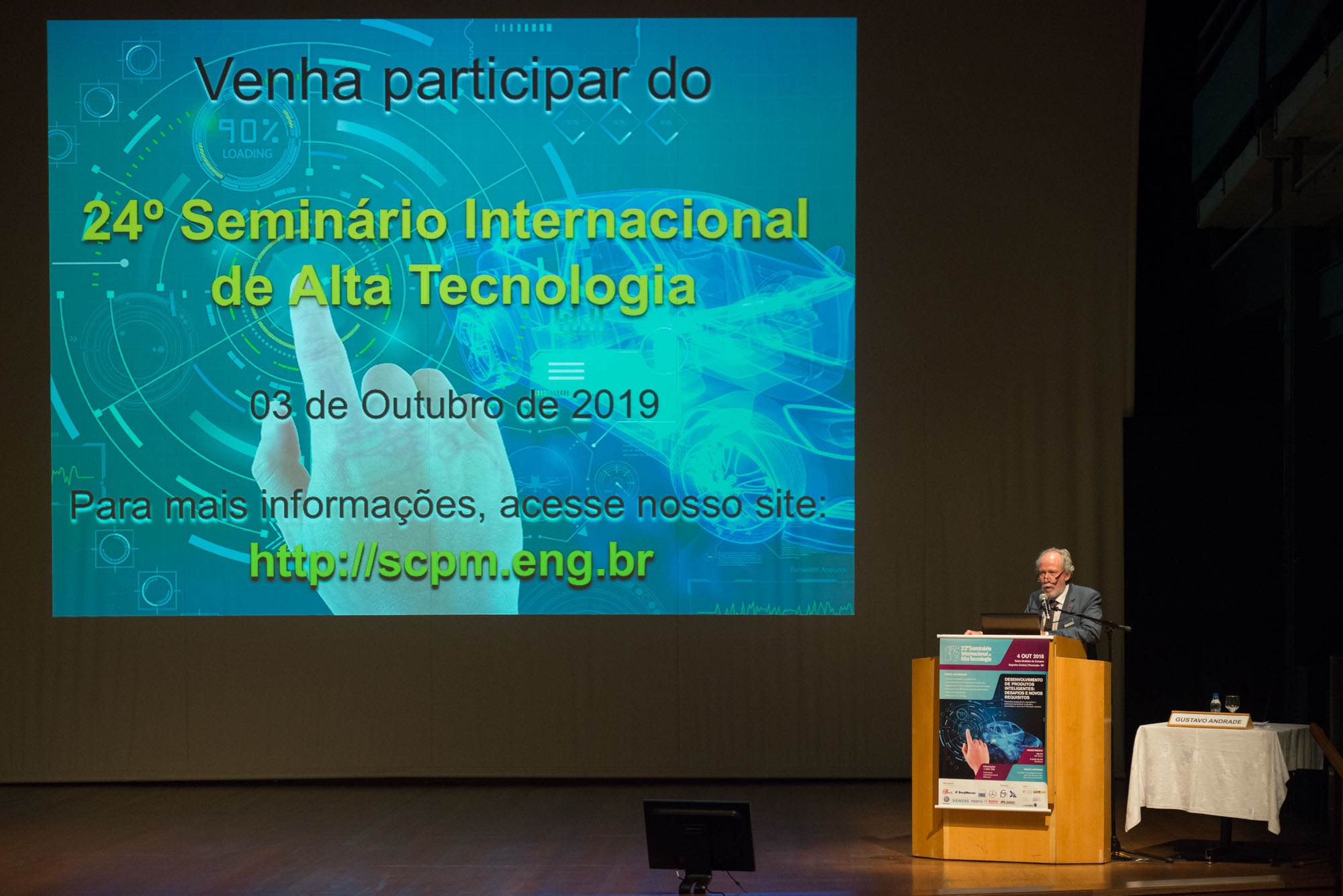23rd International Seminar on High Technology bolstered by BRAGECRIM's success
Prof. Dr. Reiner Anderl and Prof. Dr. Klaus Schützer
© Ivan Jose Moretti
(18.10.18) On 4 October, around 140 German and Brazilian researchers from the areas of production technology and advanced manufacturing came together in Piracicaba in the state of São Paulo to discuss the development of intelligent products and the associated challenges. The meeting took place against the background of the annual International Seminar on High Technology and provided a forum for researchers as well as representatives from business and industry to discuss the current state of research and compare experiences.
The organiser, Prof. Dr. Klaus Schützer from the Methodist University of Piracicaba (UNIMEP), emphasised that equal dialogue between science and industry had been an essential element of the seminar from the very first of these events. Over the last 22 years, the programme has included 200 speakers from science and industry as well as research funding providers from all over the world.
The cooperation between Prof. Dr. Schützer and Prof. Dr. Reiner Anderl from Technische Universität Darmstadt, who also gave a presentation at the opening of the event, dates back to the same period. According to Anderl, even more important than the new technologies associated with Industry 4.0 and the Internet of Things which have made their way into industry is a change in the strategies accompanying this transformation. “Both product development and production technologies are evolving towards individualisation or personalisation and leading to the development of new business models,” he explained.
Schützer and Anderl are currently working together on the research project “Scope – Smart Components” and examining how intelligent components can be integrated in an equally intelligent production system. “There is no longer any separation between product and production, these two elements need to be closely integrated – innovation in production is impossible without innovative products, a market and competence in the specialist area, as well as in management and human resources,” outlined Schützer. The project is also being supported by Prof. Dr. Eduardo Zanchi from the Polytechnic School of the University of São Paulo (USP) as a partner.
It is part of the research group BRAGECRIM (Brazilian-German Collaborative Research Initiative on Smart Connected Manufacturing), funded jointly by CAPES and the DFG for the last ten years. The network is one of the largest bilateral research initiatives to be supported by both funding organisations. It involves more than 300 researchers from different universities and non-university research institutions in both countries, who have been working together on joint projects continuously since 2008.
German and Brazilian researchers such as Schützer and Anderl had shared an interest in advanced manufacturing even before BRAGECRIM and this finally led the DFG and CAPES to set up the initiative in view of the considerable potential for cooperation and demand from researchers. BRAGECRIM is intended to strengthen existing partnerships and provide a collaborative network for projects previously managed in isolation.
Based on the success of the initiative set to end this year, in April the two research funding organisations published a new joint announcement for the funding of bilateral projects in the areas of Advanced Digitalization and Industry 4.0. “This initiative clearly shows that the topics we have been addressing for the last decade need further development. The focus is now no longer simply the production process itself; the new challenge is networked and intelligent production processes,” explained Schützer. For him and his German colleagues, and for the other researchers in BRAGECRIM, this announcement opens up the possibility of submitting new project proposals and continuing the cooperation.
As well as strengthening and consolidating existing joint projects, the BRAGECRIM initiative has also contributed towards the establishment of new scientific contacts and cooperations – such as the case of Prof. Dr. Henrique Rozenfeld from the engineering faculty of USP in São Carlos, who also gave a presentation in Piracicaba.
Rozenfeld was involved in the BRAGECRIM network and presented a successful proposal for the initiation of a new cooperation under the “DFG-FAPESP Joint Workshops 2017” announcement. In cooperation with Prof. Dr. Rainer Stark from Technische Universität Berlin, he is examining the future design of working processes in business and industry in order to derive new models from these. “In the course of their activities, all companies follow a model, called a working process. Although we are familiar with these flows, they are undergoing a transformation and it is fundamental to understand how companies will be working in ten years’ time,” explained Rozenfeld.
The announcement resulted in workshops in Berlin and São Carlos, providing German and Brazilian researchers with an opportunity to discuss this topic. “It was a very productive event, we learned a lot and had an opportunity for detailed discussions. We drew up a list of projects that we would like to submit for funding. We are working together on articles to ensure uniform scientific terminology and systems for this topic,” added Rozenfeld.


